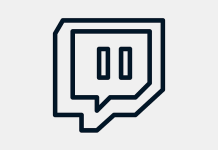The shelves of the Google Play Store might be looking a little emptier in the coming months. Google is planning on cracking down on a number of apps that are known to cause problems, including knock-offs of popular apps and apps with outdated privacy policies.
Word of the crackdown comes from an email sent from Google to app developers that was first unearthed by The Next Web. In the message, Google informs developers that it is planning to “limit visibility” or remove completely apps that do not meet certain requirements.
The primary target of Google’s quality control efforts are “zombie apps.” Typically, these are apps that are counterfeit versions of popular games or utilities that don’t perform the task they purport to do.
The intention of the apps is to show up in search when people go looking for other common apps in hopes of garnering a few downloads—occasionally with malicious intentions once they land on a person’s phone.
The area of emphasis for Google appears to be the privacy policy of these apps. In its letter to developers, Google notes that it requires developer “to provide a valid privacy policy when the app requests or handles sensitive user information.”
Apps can request permission to just about every part of a user’s device, including access to the camera, microphone, account details and contacts among other details. Google also mandates apps maintain a transparent disclosure of how user data is handled.
In Google’s developer guidelines, it states, “if your app collects and transmits personal or sensitive user data unrelated to functionality described prominently in the app’s listing on Google Play or in the app interface, then prior to the collection and transmission, it must prominently highlight how the user data will be used and have the user provide affirmative consent for such use.”
App developers have until March 15 clean up their apps and meet any necessary privacy policy requirements. Google warned that failure to do so would result in “administrative action will be taken to limit the visibility of your app, up to and including removal from the Play Store.”
The Google Play Store has become something of a hotbed for phony apps over time. While Google has attempted to clean up the store on a regular basis, it has often had more problems than Apple’s App Store for iOS—which has run into its own problems.
A major Android malware attack called Gooligan hit devices last year and managed to infect more than one million accounts according to security researchers. Some of the apps spreading the malicious software were found in the Google Play Store until Google removed them.
Our editors found this article on this site using Google and regenerated it for our readers.







